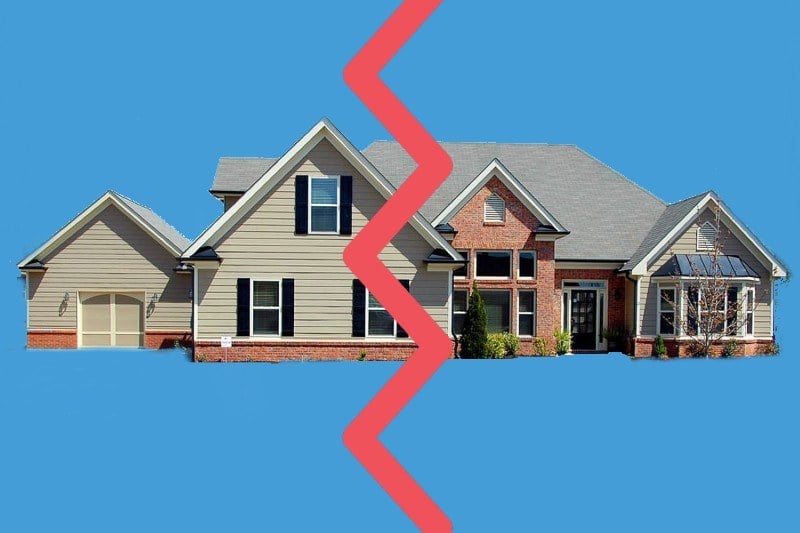It’s time to buy your home: what are the first steps you need to take? Though some steps - like finding an agent, or finding a home - might be obvious, many first-time homebuyers are unfamiliar with the loan pre-approval process.
The loan pre-approval is an important part of the home buying process because it lets sellers know you’re serious, and it lets you know how much money you can actually spend on your home. Here’s what you need to know.
What is a mortgage pre-approval?
A mortgage pre-approval letter tells you how much money a lender is willing to let you borrow for a home. To determine this, a loan officer will review:
- Income
- Debts (and debt-to-income ratio)
- Credit history
- Credit score
- Assets
- Employment history
Nowadays, it’s often possible to do this entire process online - even with a traditional lender.
How long does it take to get pre-approved for a mortgage loan?
Typically the pre-approval process takes 1-3 business days.
Why do I need a pre-approval letter?
There are a few different reasons that getting a home loan pre-approval letter is a good idea.
- You know which homes are actually in your budget. If your credit score is less than perfect, or your debt-to-income ratio is higher than the lender might prefer, then you might qualify for less home than you might assume. No one wants to fall in love with a house, only to realize the lender won’t sign off on the loan. "We would recommend getting a pre-approval letter to set proper expectations with all parties. Many are often surprised that the borrower qualifies for less than they anticipated," explains mortgage advisor Julian Minatel.
- You have credibility with home sellers. Although most home sellers will allow you to look at their homes without a loan pre-approval (though some won’t), it would be difficult to submit an actual offer without a mortgage pre-approval. The home seller wants reassurance that you’re not going to have to back out of the deal due to financial issues. And in today’s hot market, you likely can’t wait days to submit an offer while waiting for a last-minute pre-approval.
- It’s easier/faster to close. You already gave your information to your lender and know what’s required in order to be approved for the loan, so there’s no last-minute scrambling. So once your offer is accepted, the closing process can go much more smoothly.
“It’s important for homebuyers to get approved so that they know their true buying power - so they’re not spending their time searching and physically looking at properties they can’t actually afford," advises Lehigh Valley-based buyer agent Larry Lantz. "It also helps them understand, especially if they’re first-time buyers and they’re renting, that - 'If I spend X amount in rent, how much of a house can I get for that same amount - or even less?' Since it’s a lot more affordable to purchase and have a mortgage than it is to rent.”
How to get a pre-approval letter
You’ll need to provide certain information to your lender in order to receive a pre-approval letter.
This includes:
- Identification(driver’s license or passport)
- Social security number
- Copy of green card (if applicable)
- Credit history
- Employment verification (your lender will likely call your employer to verify the details you’ve provided about your salary, etc.)
- Two years of W-2 forms (the standards for independent contractors are similar but different)
- Recent pay stubs covering the last 30 days
- Two years worth of personal tax returns
- Two years of business tax returns (if applicable)
- 60 days worth of bank statements
- List of monthly debts (car loans, etc.)
- Gift letter(s), if applicable
- Quarterly statements from asset accounts (401k, etc)
- Proof of any additional income
- Renters may need to show proof of rental payments for the last 12 months
Does it sound like a lot? Keep in mind, the lender is trying to figure out whether you can borrow what is likely to be hundreds of thousands of dollars. They want to make sure you can pay for your home.
“Homebuyers are often surprised by how much lenders ask for and require in the pre-approval process," observes Minatel. "This varies from borrower to borrower and the desired loan program, but lenders always require the borrower's credit to be evaluated as well as their financial documentation."
Does a pre-approval letter mean I’m approved?
A pre-approval (or conditional approval) isn’t the same thing as an approval, so your loan can still be denied. The lender will again verify your details once you have an accepted offer. This is because anything from your credit score to your debt-to-income ratio could have changed in the time between your pre-approval and the approval request.
This is why you should always check with your lender first before taking on new debt, opening new lines of credit, etc. while looking for a home. The lender also needs the results of the appraisal and the inspection - they don't want to pay more for a home than the home is worth.
Does a pre-approval hurt my credit score?
Yes, getting pre-approved does impact your credit score - but it should not drop significantly. A single credit pull may cause your score to drop 1-5 points (out of 850 maximum).
“I know there’s hesitation for people to get pre-approved because they’re worried about having their credit pulled and having that as a strike against them, but it’s not necessarily so,” explains Lantz.
It’s important to keep in mind that credit score company FICO considers all inquiries within a 45-day window as “one” credit event - so it’s good to shop around for lender quotes within that timeframe.
Shopping around to multiple lenders within a short timeframe can be stressful, especially when you’re gearing up to buy a home - this is why Houwzer mortgage’s team shops around to lenders for you, finding the best rate for your unique situation.
Can I make an offer without a pre-approval letter?
You can make an offer on a house without a pre-approval letter. Cash buyers, after all, don’t need a pre-approval offer, since they’re not going through a lender.
However, this will typically make your offer appear less strong to the seller since it’s a contingency offer (your offer is contingent on a lender approving you). In a competitive market, this can put you at a disadvantage if other people are placing offers on the home - to make your offer more appealing without the pre-approval letter, you may want to offer the seller more money or a larger good faith deposit.
How long is a mortgage pre-approval good for?
If you’re pre-approved, then the bank has offered to lend you the amount indicated in the next 30-90 days (the length of time depends on your lender). Remember, it’s an offer, not a contract: if your financial situation changes during that time, they can retract the offer. After it expires you’ll need to be pre-approved again, so you should be ready to hit the ground running on your home search once the pre-approval comes in.
How is pre-qualifying different from a pre-approval?
When you opt for a pre-qualification, rather than a pre-approval, you provide your financial information to the lender for consideration - so they won’t be running your credit or asking for verification from your bank, employer, or anything else. While a pre-qualification can be useful for helping you determine what you’re eligible for, it won’t carry weight with home sellers.
For Further Reading



